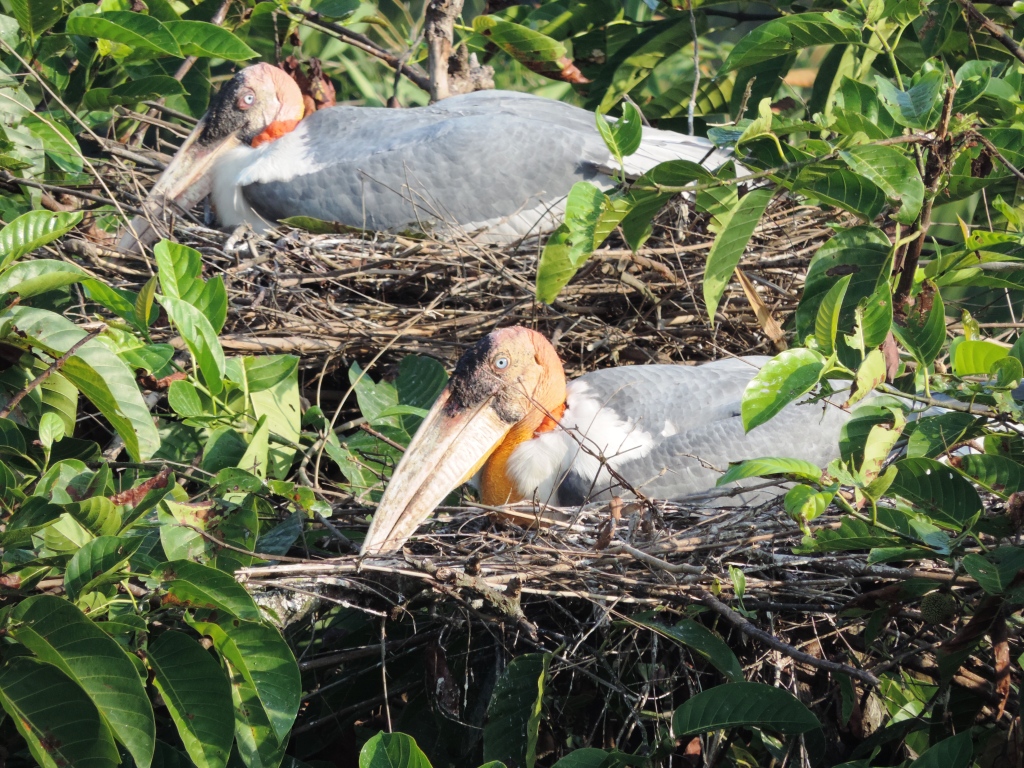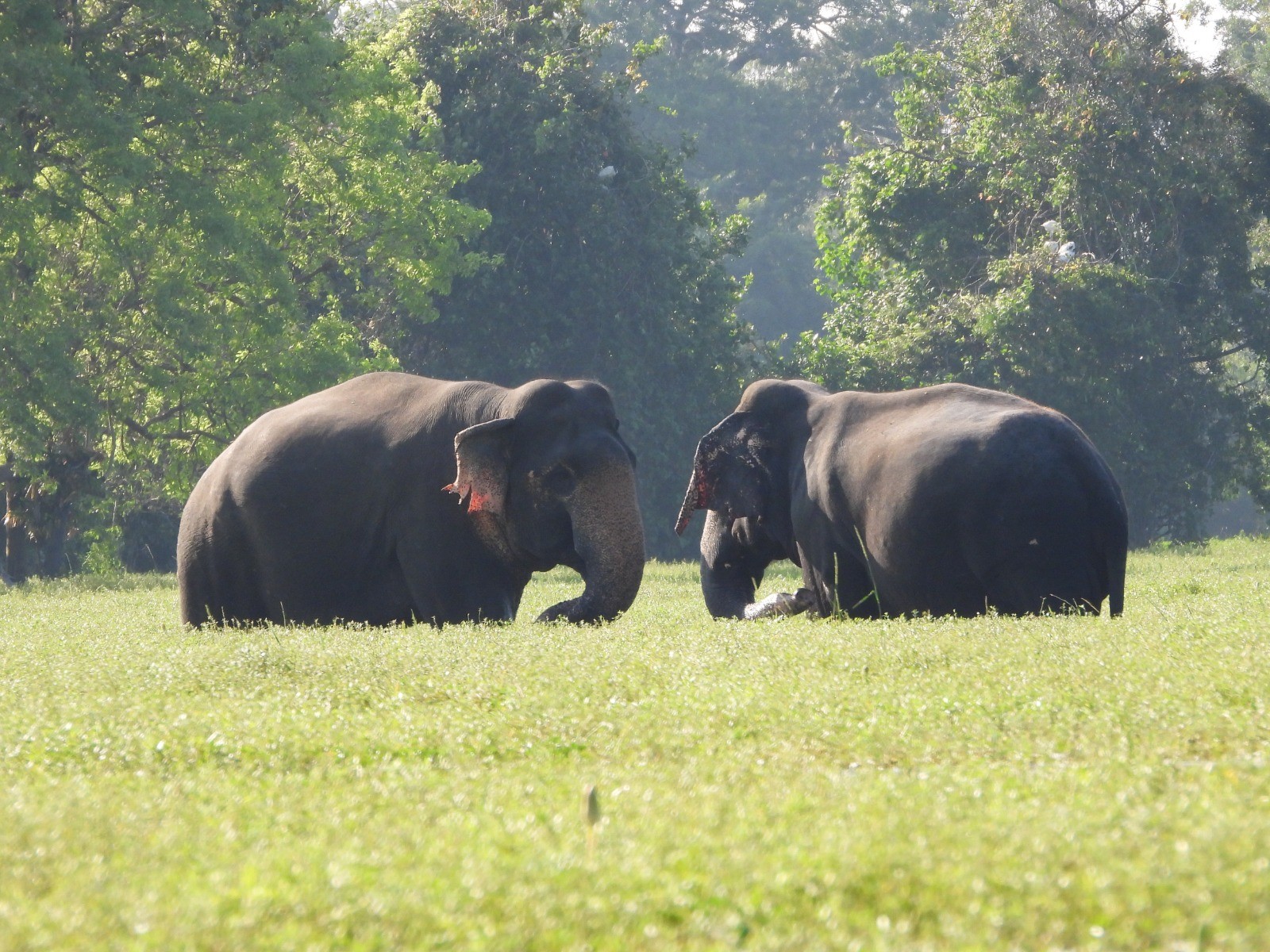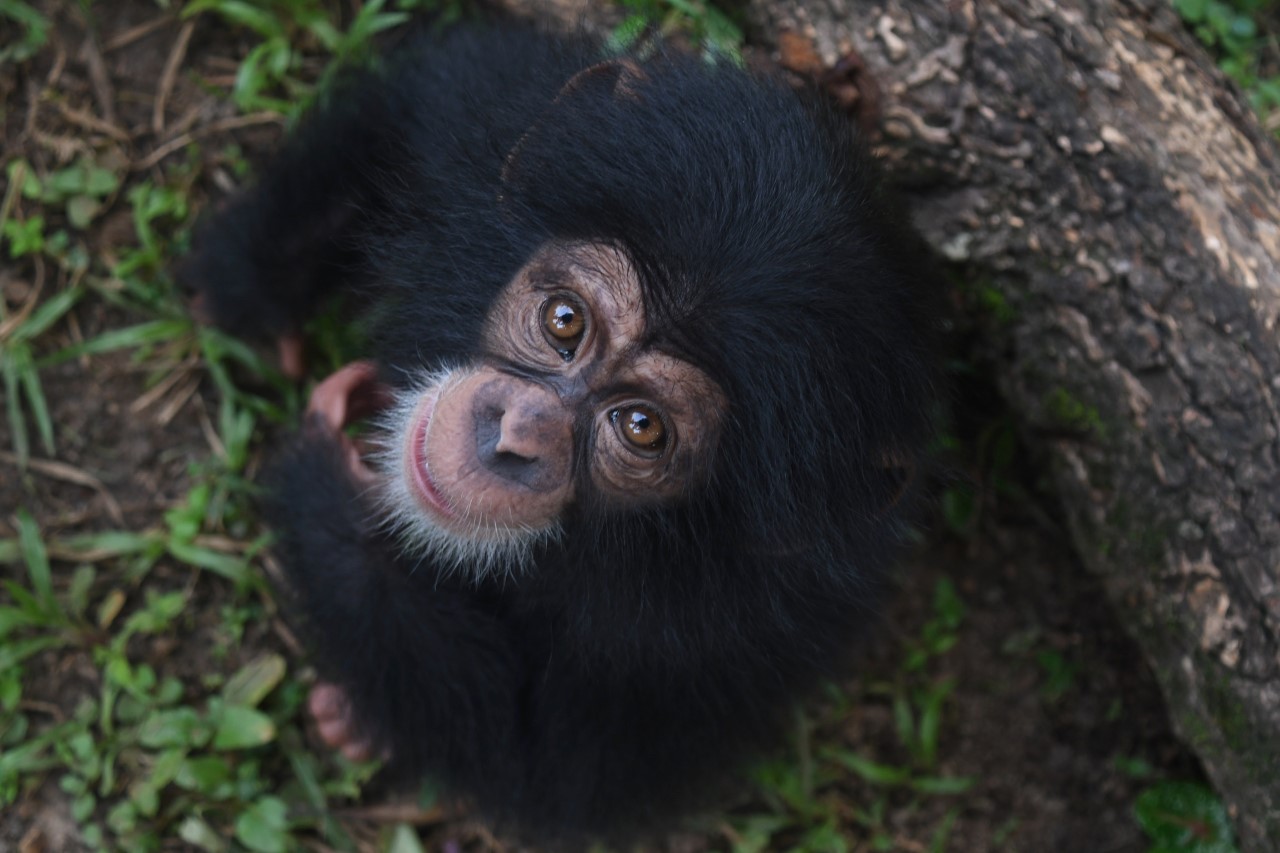The Greater Adjutant Stork, or Hargila, is the world’s rarest stork, breeding only in Cambodia and the Assam region of north East India, with Assam hosting 80% of the global population. This remarkable bird is 5ft tall with an 8ft wingspan, and is a vital part of its wetland ecosystem. Wetland ecosystems worldwide are in critical need of protection and restoration with around 90% already lost. The Hargila is also a very effective scavenger, which is crucially important in reducing the spread of diseases for both wildlife and people.
It is this association with death and disease which has historically given the stork a bad reputation. As the human population of Assam has increased and wetland areas reduced, the storks have come into closer contact with people and moved onto feeding on rubbish dumps. The birds are often seen as dirty and a pest in rice paddies and on farms and in villages, leading to misunderstanding and persecution. Nesting sites face numerous threats in addition to human disturbance, including from winds, storms and predators, which combined have put the species on the IUCN red list. Immediate interventions such as rescue operations, protective nets, and community outreach are crucial for their survival.
We are delighted to be working with Purnima Devi Barman, dedicated champion of the greater adjutant stork and founder of the community conservation group the Hargila Army, also known as the Stork Sisters. She recognised the value of the storks and saw how their numbers were declining and she has been working to inspire thousands of women in communities across rural Assam to join her in protecting the storks and their habitats through species and habitat restoration, rescue operations and cultural outreach.
As well as planting thousands of trees to safeguard nesting habitat into the future, Purnima and her team are dedicated to maximising the chance of survival of every stork chick. They build their nests at the top of very tall trees and sadly many chicks fall or try and leave the nests before they are ready to fly. To help protect these chicks, the team set up nets below the nesting sites to catch fallen chicks so they can be rescued and if necessary hand reared and then released back into the wild. The project has already brought the Hargila back from the brink of extinction, increasing numbers in Assam from a low of 115 to today’s estimate of 1830 individuals.
Conservation without livelihood is not sustainable, and the key to the Stork Sisters’ success has been to tap into Assam’s rich tradition of weaving. Purnima secured funding for 30 looms, set up a weaving centre and provided training in weaving the Hargila motif into fabrics which are then used in their traditional textiles and scarves. This is integrating the stork into the culture of Assam as a source of pride and providing women with an independent income. Those women who live in more remote villages make small groups sharing 2 or 3 looms and some were also given sewing machines to make bags, cushion covers and other items from the handwoven fabrics. All of the women do conservation work alongside their weaving and sewing. Many of the women are very isolated, working on farms with only their immediate family for company, so the project provides them with a social network and support. They meet with other women in the group, visit villages as part of their community outreach work and get together to weave and sew.
Impact
This project is not only benefitting the stork and the wider ecosystem, but crucially the rural communities in Assam, transforming the lives of the members of the Hargila Army. To date, around 10,000 women have joined the organisation, becoming passionate conservationists dedicated to protecting the storks, whilst at the same time improving their own economic status and financial security. It is a perfect example of how small scale community based conservation initiatives can make a real difference to protecting biodiversity and ensuring a sustainable future for people and wildlife.



